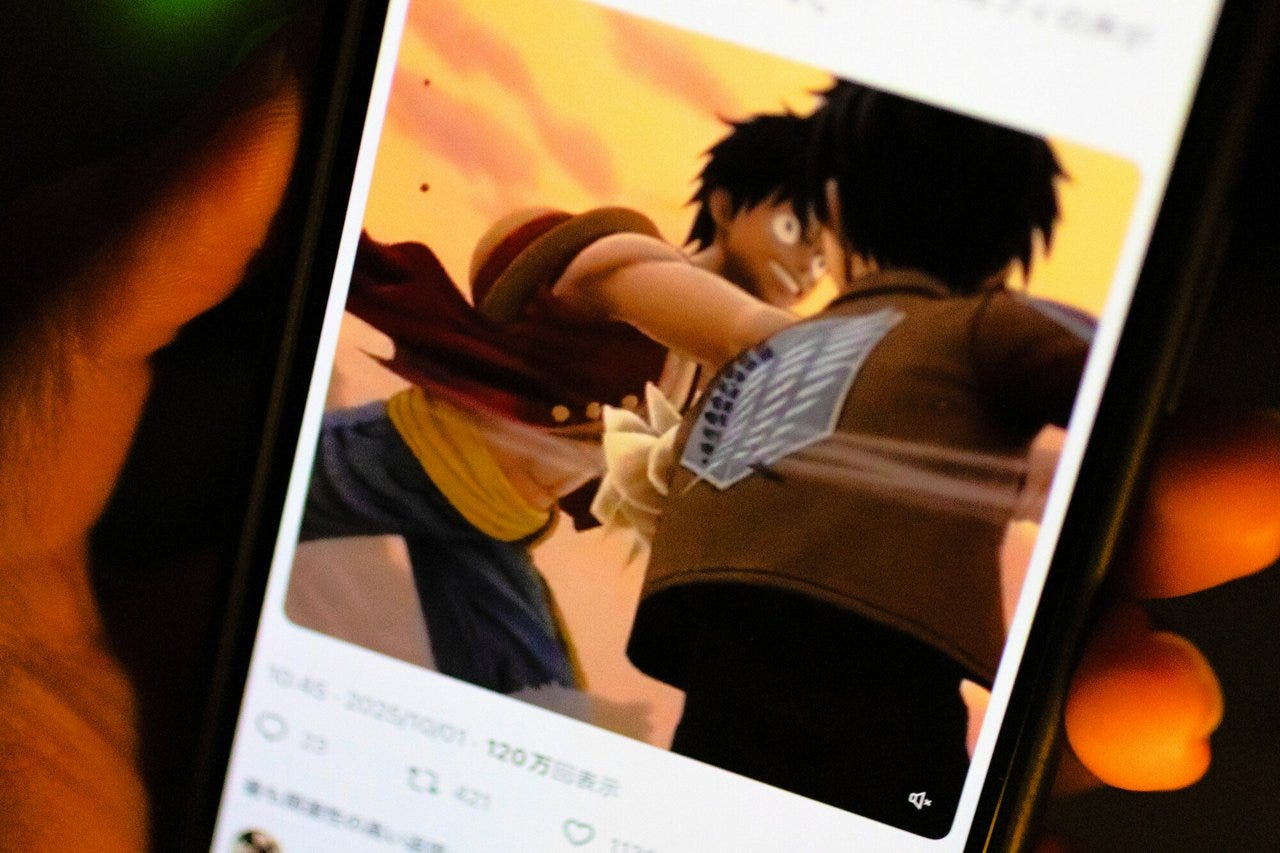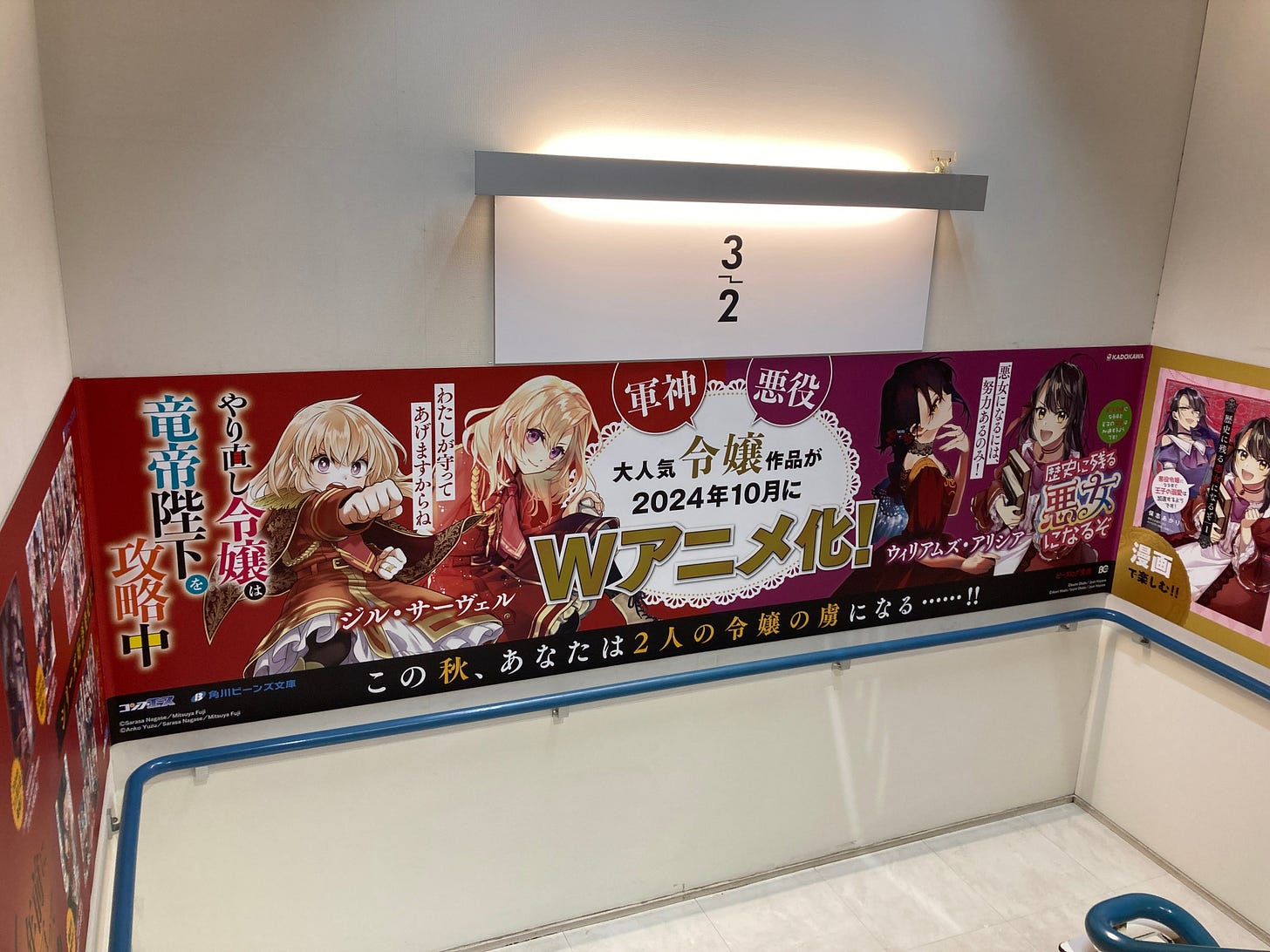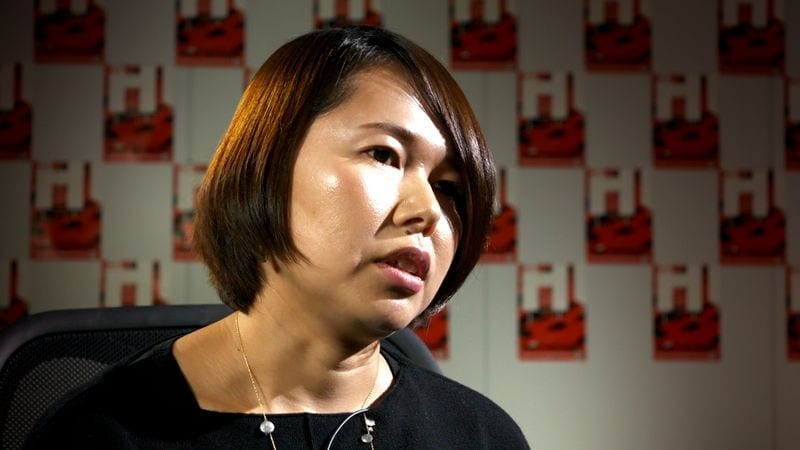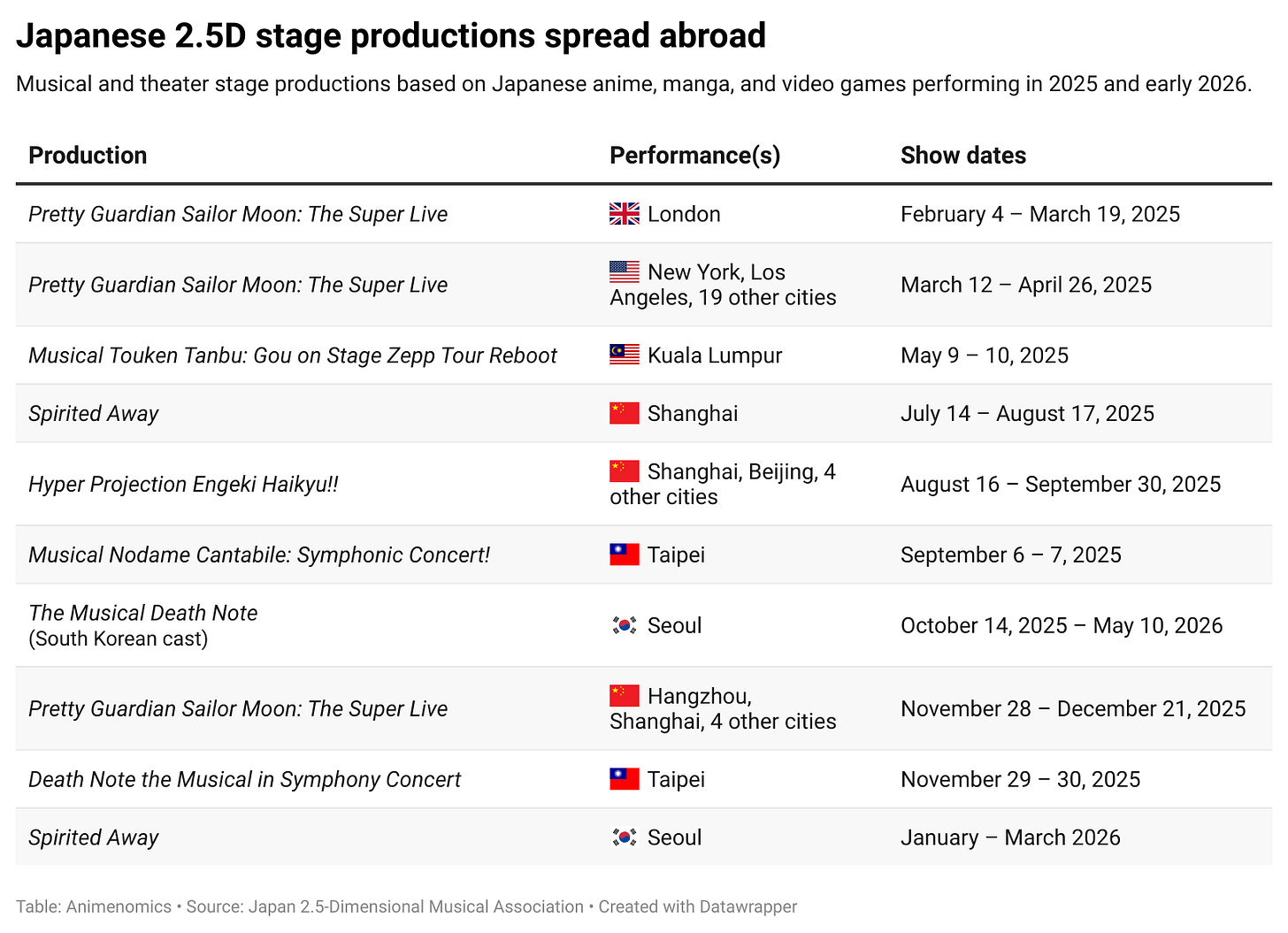OpenAI restricts anime IP use on AI video generator
Plus: Kadokawa diversifies its 'isekai' portfolio; CyberAgent taps WIT STUDIO producer to lead new anime studio; 2.5D musicals record fastest growth in years; and more
This is your weekly Animenomics briefing, covering the business of anime and manga. Today is Wednesday, October 8, 2025.
In case you missed it: Los Angeles-based web3 technology firm Azuki Labs entered the anime streaming video market this month with live screenings of Gintama spin-off Mr. Ginpachi’s Zany Class on its newly acquired anime.com platform.
Anime industry voices concerns with OpenAI’s Sora app

Anime industry concerns over the use of anime characters in OpenAI’s Sora machine learning model for video generation has forced the Silicon Valley artificial intelligence firm to reverse its policy of allowing copyrighted content on the model by default.
Why it matters: Anime rightsholders and creators have grown especially frustrated with what they view as Sora’s inadequate safeguards against the unauthorized use of characters and intellectual property.
Catch up quick: After OpenAI released a new version of Sora last week, users shared on social media videos of popular Japanese anime characters even as Sora refused to generate videos of Disney characters when prompted to do so.
Japanese social media users, including one legislator from the country’s ruling party, raised concerns about possible copyright infringement due to Sora’s ability to closely replicate anime character designs and voices.
“Legal differences between Japan and the U.S. may be a factor, but it feels like a malicious slighting of Japan,” an executive at a Japanese publisher told Nikkei Asia.
By Friday, OpenAI had moved to restrict the ability to generate specific anime characters by name, with chief executive Sam Altman acknowledging anime creators in a blog post outlining more “granular control” over character use.
Yes, but: Sora users point out that they are still able to bypass the model’s restrictions on anime characters by describing the premise of specific anime like Makoto Shinkai’s Your Name.
Responding to the findings on X, Fullmetal Alchemist: Brotherhood anime director Yasuhiro Irie accused Altman’s overtures to anime industry as “deception”.
Friction point: Central to the discussion over anime intellectual property rights in video machine learning models is the absence of a fair use doctrine in Japanese copyright law.
The Nippon Anime & Film Culture Association, an animator advocacy group, last year drafted proposals for the Japanese government to treat voices and artistic styles in illustrations similar to brand logos, which are afforded legal protections.
Kadokawa diversifies from pioneering ‘isekai’ portfolio

Kadokawa is facing growing competition from light novel and manga publishers in the isekai anime market, pushing the publishing giant to diversify into new genres and international markets.
Why it matters: Kadokawa, whose properties like The Familiar of Zero helped pioneer the isekai genre where a protagonist is transported to or reborn in a fantasy world, is applying learnings from the genre’s success to new properties for global audiences.
What they’re saying: “We are conscious of creating a well-balanced lineup that takes diversity into consideration,” Kadokawa chief anime officer Daijo Kudo said in a new interview published in the company’s latest annual integrated report.
The publisher is diversifying from traditional isekai fantasy to villainess stories popular with female readers, boys’ love titles popular in Asian markets, and battle action titles targeting boys.
“Furthermore, to minimize volatility, our basic strategy is to release a steady stream of sequels to popular series each fiscal year,” Kudo added, while still committing to existing core isekai properties.
Zoom in: Kudo, who led the formation of Kadokawa’s global rights division before being elevated in April as chief anime officer, says Kadokawa is also investing in the expansion of its in-house merchandising business abroad.
Using its own marketing data, Kadokawa has been piloting sales of merchandise from Alya Sometimes Hides Her Feelings in Russian in countries where Kadokawa operates foreign subsidiaries.
In response to a surge in licensing requests abroad for Oshi no Ko and Delicious in Dungeon merchandise, the company is also stepping up hiring for global talent with experience in negotiating with foreign companies.
What we’re watching: Kadokawa aims to apply learnings from its media mix strategy to Pan Dorobou, an award-winning picture book series that was the publisher’s best-selling book series domestically in the most recent fiscal year.
An anime adaptation of the picture books was announced this past June.
Clippings: CyberAgent forms anime production studio

CyberAgent’s anime division established a new anime studio named Studio Kurm to be led by acclaimed anime producer Maiko Okada, who worked on Doraemon at Shin-Ei Animation and titles like Ranking of Kings at WIT STUDIO. (Oricon News)
Hong Kong retailers held a monthlong collaboration campaign featuring characters from Nagano’s comedy manga Chiikawa in an effort to help revive the territory’s slumping retail sector. (The Mainichi)
Dai Nippon Printing’s Manga Planet digital manga joint venture, which is known for its large catalog of boys’ love titles, will close in March 2026 after payment processing service Stripe imposed adult content restrictions on the subscription service. (ITmedia News)
Light novel publisher Overlap debuted on the Tokyo Stock Exchange slightly below its initial public offering price. (Otaku Lab)
A disclosure document filed last week with the exchange shows that Shogakukan and The Pokémon Company have raised their stakes in Overlap by 2.8 percentage points after Nippon Investment Company divested most of its holdings.
Pirated webtoon takedown requests now account for 77 percent of all takedown requests related to Korean-language content, according to data compiled by the Korea Copyright Protection Agency. (News1)
British publisher DK appears to have abandoned a compendium titled Manga: A Visual History and written by a number of prominent western manga scholars due to complications with acquiring image rights. (Frederik L. Schodt on Facebook)
Japan’s 2.5D musicals record fastest growth since 2018
Japan’s market for musical theater adaptations of anime, manga, and games saw its fastest growth last year since 2018, jumping nearly 17 percent compared to the prior year as domestic shows targeting foreign tourists and overseas shows increase.
Why it matters: 2.5D musicals, as these adaptations are called, make up more than one-third of Japan’s total musical theater revenues, according to data published in PIA Research Institute’s 2024 Live Entertainment White Paper.
By the numbers: Japan’s domestic market for 2.5D musicals climbed to ¥33 billion (US$219 million) last year, according to data provided to the Japan 2.5-Dimensional Musical Association.
Despite fewer stage productions—198 last year versus 236 in 2023—attendance climbed 9 percent to 3.15 million admissions.
As the association celebrated its tenth anniversary last year, the number of people signed up for its e-mail newsletters reached 260,000.
Driving the story: Demand for tickets by foreign tourists arriving in Japan continued to increase as the country saw record arrivals last year.
In response, the 2.5-Dimensional Musical Association increased the number of productions supporting ticket sales in English for tourists to 26.
The association’s board of directors added two new members this year in an effort to continue promoting 2.5D musicals at home and abroad.
Animenomics is an independently run and reader-supported publication. If you enjoyed this newsletter, consider sharing it with others.



